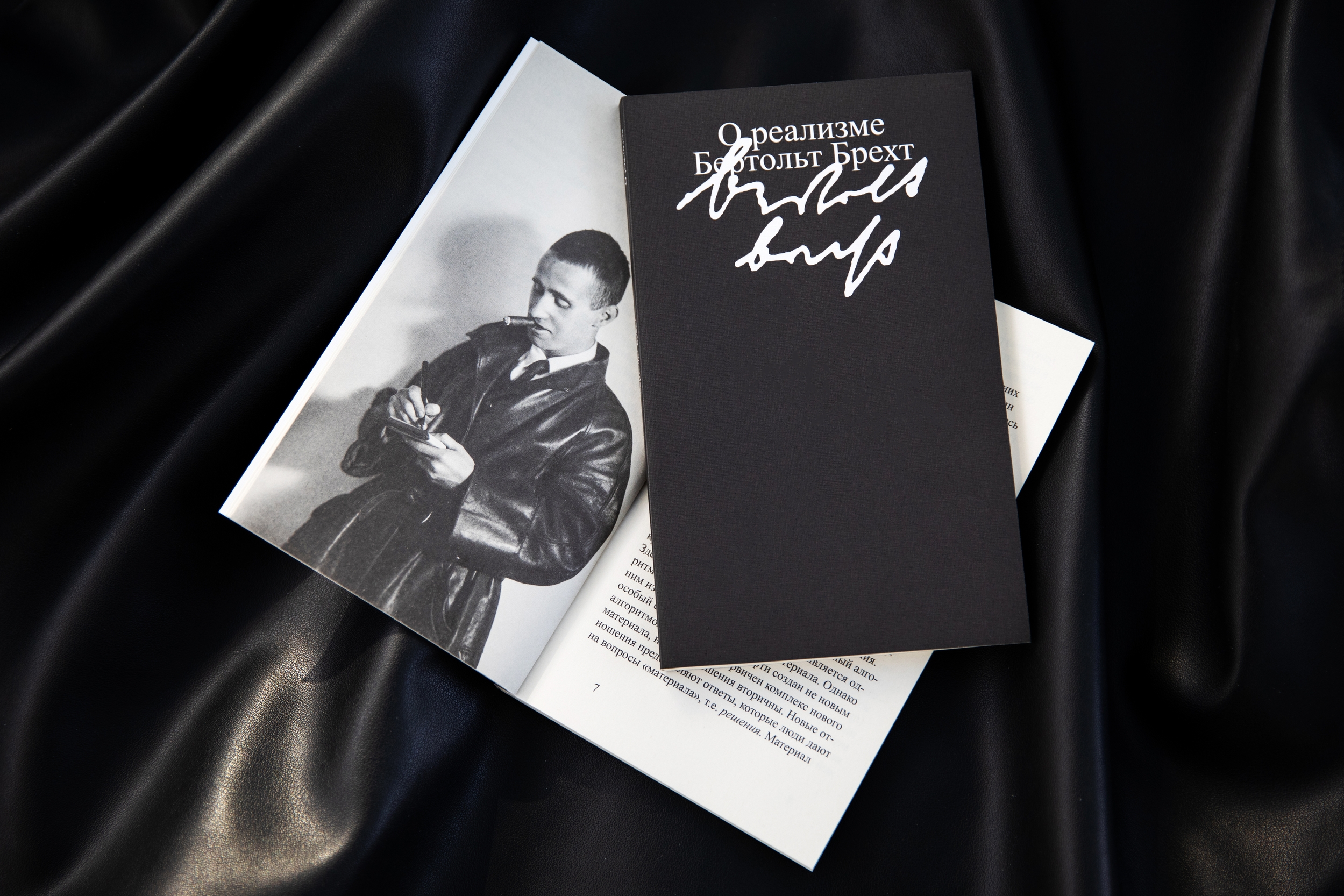Bertolt Brecht.
On Realism
A collection of texts on the concept of realism by the German playwright, director and art theorist.
On Realism is a collection of essays by Bertolt Brecht from various years, some of which are published here in Russian for the first time. Reflections on the maxims of realism run like a unifying thread through Brecht’s biography. For Brecht realism in an artistic work is not a matter of “formal prescriptions” but depends on how truthfully the work reflects the structure of society. To create realistic art is to reveal the root causes of the processes, which are depicted in the work, and to tell the truth by penetrating to the heart of key issues of the day.

Bertolt Brecht (1898–1956) was a German playwright, poet, theatre director and art theorist. His writings and stage productions fashioned a concept of “epic theatre, ” which redefined the boundaries between the realistic and the authentic.
It’s a good idea to define realist works as combative works. In them, reality is given a voice that we don’t otherwise get to hear. They report a contradiction (and appoint themselves as its spokesman), whereby new dynamic forces come to contradict pre-existing views and modes of action. Realists fight against those who deny the existence of real forces. Realists fight any sort of reductionism, because it does not enable us to control reality.
– Bertolt Brecht, excerpt from “Notes on the Realist Mode of Writing, ” 1940
On Realism includes essays and articles on the limits of verisimilitude in theatre, the scope of the realist method and its artistic potential. Brecht’s texts are paradigms of a realist approach that is still relevant today.
An afterword by the art and theatre historian Vladimir Kolyazin considers the influence of Brecht’s theoretical method on Russian theatrical culture and attempts to define the essence of the realist approach as Brecht applied it in his own creative and theoretical work.
Translator
Alexander Filippov-Chekhov
Editor
Irina Ivakina
Design and layout
Olesya Voronina